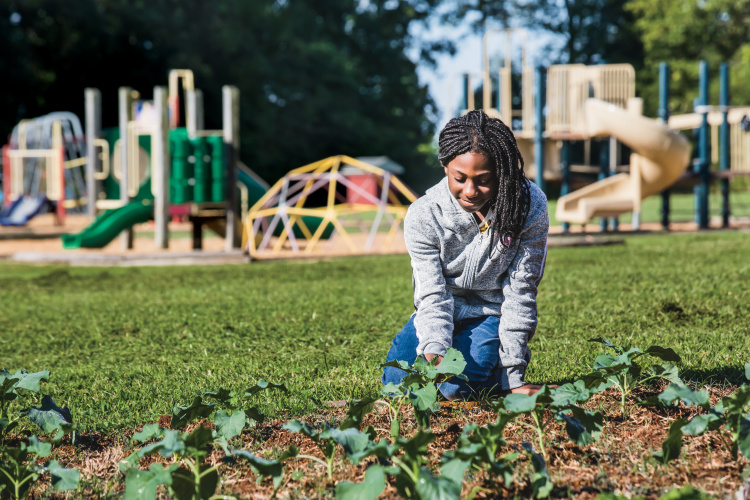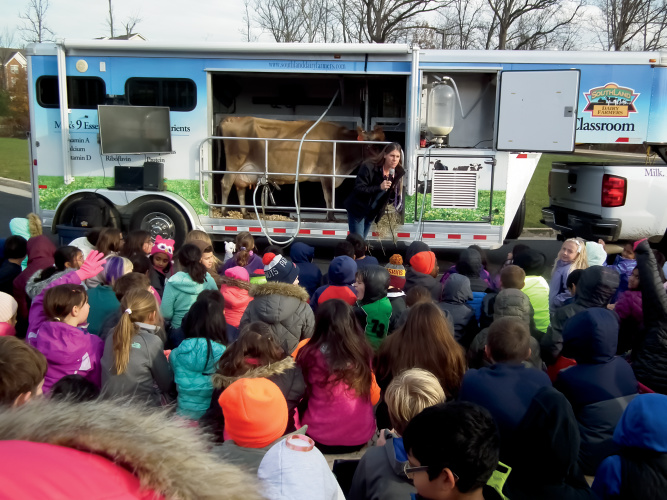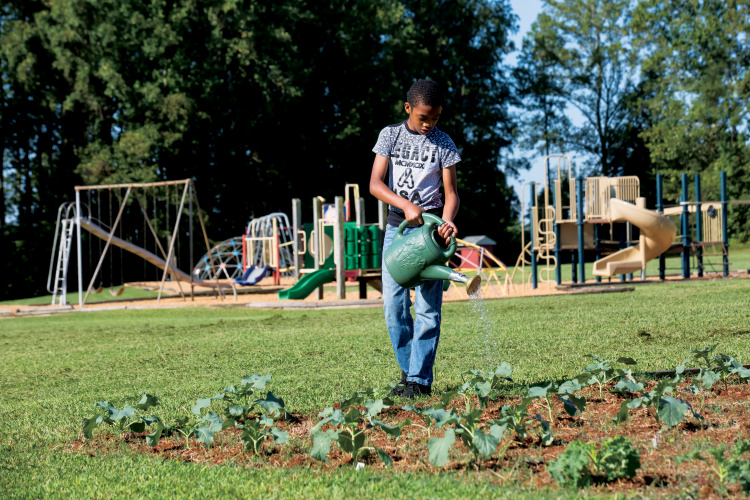Home > Virginia > Virginia Ag Education > Virginia Programs Take the Farm to School
Virginia Programs Take the Farm to School
In partnership with: Virginia Department of Agriculture and Consumer Services

Farm to School programs are active in more than 1,300 Virginia schools, touching the lives of approximately 887,000 students since 2015, according to USDA’s Farm to School Census.
Examples include Rappahannock County, where the public school system serves students apples from local Thornton River Orchard as part of their Farm to School Program. Students at Hearthstone School, a private school in Rappahannock County, harvest fresh food from their school garden to supplement sack lunches.
Loudoun County earned the USDA Food and Nutrition Service “One in a Melon” award for giving students farmer trading cards with information about local farms and their crops. Only one school system in each state received the award.
“It’s not always easy for schools to work with individual farmers, and it’s not always easy for farmers to meet the needs of schools,” says Trista Grigsby, Farm to School specialist with the Virginia Department of Education. “But, when they begin the dialogue, wonderful connections can happen that add value to the learning experiences in schools from the garden to the classroom to the cafeteria.”

Reaching Students
From Kimley Blanks’ observations, fifth graders in her county crave agriculture’s educational experiences as much as taste-testing the vegetables of a local farmer.
“Their faces are all focused on the person giving the farm lesson,” Blanks says about the agricultural education efforts in Halifax County School District. “The students are raising their hands, talking and discussing. It’s exciting to see them learning and taking it in.”
Halifax County fifth graders taste food grown by local farmers, plant school gardens and learn about where their food from comes thanks to a collaborative effort of the local soil and water district, local conservation service, Virginia Cooperative Extension Service, Halifax County Agricultural Development and the Halifax County School System. The county’s grassroots program recently joined the Farm to School Network, which intends to duplicate more successes like Halifax County across Virginia.
The Virginia Farm to School Program is part of a nationwide network that literally brings the “farm to school,” engaging students and school cafeterias in areas of local food procurement, classroom lessons and school gardens.
“I consider Farm to School a triple win: It’s great for farmers, it’s great for communities and it’s great for kids,” says Grigsby.
Local farmers gain a market through the school cafeteria. Rural areas benefit from those sales. And students connect with healthy food.

Hands-on Learning
Halifax County fifth graders shocked the local Farm to School coordinators when they voted sweet potato and spinach quesadillas as their favorite sweet potato dish. The tasting day followed guest speakers giving classroom lessons on the vegetable. Students learned about how it grows (underground – to their surprise), how it’s harvested, the nutritional value and what buying local means, says Blanks, agricultural marketing and development director for Halifax County Agricultural Development.
Classroom Farm to School lessons like these incorporate well into school subjects, such as science, language arts and math. Plus, the Halifax County series on sweet potatoes led to the inclusion of sweet-potato- infused foods on the cafeteria menu in fall 2017, including a sweet potato yogurt smoothie at breakfast.
In the same season, students planted a vegetable garden with broccoli, turnips and kale. Tastings followed, and through all of it, the students solidified their connection to the origin of food.
“It makes Halifax County a very proactive, positive agriculture community from our youth all the way up to our farmers and processors,” Blanks says. “It gives a taste of what agriculture means and opens their eyes to potential and opportunity.”
Support for Farm to School programs is growing. In 2017, the U.S. Department of Agriculture awarded the Virginia Department of Education a grant of $99,825 to support Farm to School efforts throughout the state. The funds intend to further develop relationships between local governments, school districts, Extension agents, farmers, and other stakeholders.



